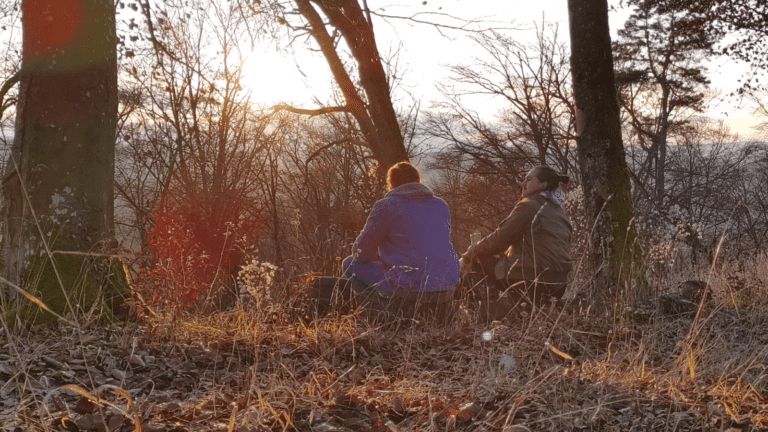Why lifelong learning is essential for a fulfilling life
It is no surprise to anyone that education is essential to a successful life, but the following quote from John Dewey takes this idea a step further:
"Education is not preparation for life, education is life itself".
JOHN DEWEY
These famous words, spoken more than a century ago, express the sentiment of a lifelong learner who views learning as an ongoing journey, not just a means to an end to achieve a particular degree. Whether you're interested in philosophy and exploring ancient concepts or struggling with problems in your everyday life:
Learning plays an enormously important role.
Introduction to John Dewey and the origin of his famous quote.
John Dewey was an American philosopher and educator whose ideas about education are still relevant today.
This famous quote of his has been shared countless times online and sums up what I believe is an essential part of life: constantly growing, learning and understanding the world around us.
The words of this quote were first uttered publicly by Dewey in 1908 in one of his lectures, when he explained that education means constantly questioning and adapting to new situations, rather than just learning certain facts that later serve to prepare someone for real life. Dewey's quote can help us see education with new eyes and emphasize its role in a meaningful life full of curiosity and knowledge.
Briefly explained: What is learning actually
Learning is the process of acquiring knowledge, skills and experience through study, practice or instruction. It is a fundamental part of human development and should not be seen as something to be done at school or university, but as an ongoing journey throughout life.
Simply put, learning means expanding our understanding of the world. This can be done by studying a variety of subjects, including science, history, art, and, of course, philosophy. Learning helps us become better problem solvers as we gain deeper insight into how things work in the world around us.
Learning throughout the lives of most people
Probably most of us know that we should always learn something new and never give up learning.
But the reality is: most people pretty much stop learning after school or university. Once they have acquired the necessary skills.
Of course, we never completely stop learning new things. That would go against our nature and the way our environment works. We will always be confronted with new things, situations and concepts. But unless we actively seek them out, these opportunities will be few and far between and we will more or less stagnate mentally. New knowledge comes, old knowledge goes and we never reach new heights.
But why is that?
One could argue that in a world with increasingly advanced technology and higher living standards, it is no longer necessary to acquire additional knowledge or skills after a certain point (usually after school or university) in order to survive. But that was true even before the onset of the digital age. And interestingly, we tend to have more free time on our hands than our predecessors (at least on average). So there must be other factors why we don't tend to keep learning.
We could also point to current education systems, which are often forged along commercial lines rather than following educational science or aiming to provide young people with a broad knowledge base. No matter what the exact cause may be, they often fail to instill in people a meaningful interest in knowledge and so they do not see sufficient appeal in acquiring new skills after graduation.
But if you ask me, it's much more important how you were raised outside of school. My parents, for example, encouraged me and my brothers to be curious from an early age. And that's perhaps the most important factor. If you grow up in an environment and with role models that don't encourage learning, there's a good chance you'll be averse or at least disinterested in new stimuli and learning opportunities.
Another point to make is that with the abundance of entertainment options like online streaming platforms and video games, there is much less incentive for people to go out and explore new ideas and concepts. Instead, we can numb ourselves. I know. You probably saw it coming this point, but for good reason.
Therefore, there are mainly three understandable reasons why people often no longer learn much new:
- There is no obvious need to learn further
- There is a lack of curiosity to learn new things
- It is very easy to numb ourselves with passive activities
The symbiotic relationship between learning and life
Learning and life have a symbiotic relationship in which one plays an important role for the other. This weighty fact was immortalized by Dewey through his famous quote.
Learning and living go hand in hand, and one cannot exist without the other. Simply put, we learn to live our lives better, and life gives us plenty of learning opportunities through our experiences - if we take advantage of them.
From the moment we are born, we learn and grow until our last breath. So John Dewey's words are true - education is not something we do for just one stage of our lives - rather, it is a lifelong journey that helps us shape our destiny and become our best selves.
Why lifelong learning is essential for a great life
Like this. We have learned that life is not without learning. But that's not all there is to it in this regard. learn (lame pun - I know).
Probably the most impressive observation one can make is that - as long as basic needs (food, shelter, companionship, etc.) are met - life seems to get better and better in proportion to the number of things we learn.
As I mentioned, I was raised to be curious, but that doesn't mean I haven't had periods of vegging out. Especially in my early twenties, I was at times very resigned and hardly moved out of my comfort zone. My everyday life consisted mostly of watching series, playing video games, and hanging out with friends. Undoubtedly the best part, was the discipline I brought to fitness training.
Of course, I don't want to say that you can't consume video games and series. In moderation, that's no problem at all - but often "in moderation" is far from reality.
I also don't want to say that hanging out with friends is wrong. On the contrary, it can be really good. But it would also be a (though not so often practiced) way to learn new things together with friends.
But at some point I noticed that I always seemed to do particularly well when I discovered something new and threw myself completely into a subject that was new territory for me. Or when I deepened my knowledge about something.
And that's exactly the curiosity I'm living now. And I have to say: life has never been more interesting.
Moreover, the world is becoming more and more dynamic. At no time in history have people had to adapt as quickly as they do today. The traditional education system is no longer sufficient to keep up. Therefore, the need for constant learning and self-improvement is growing in order to succeed in life. And chances are that this need for adaptability will continue to grow in the future.
Who knows, maybe that's a good thing. Instead of being tied to one profession for life (as was often the case in previous generations), we are free to continue exploring what we want.
"If you want to be a grocer, a general, a politician, or a judge, you will inevitably become that; that is your punishment. If you never know what you want to be, if you live what some call the dynamic life but I call the artistic life, if you are unsure every day of who you are and what you know, you will never become anything, and that is your reward."
- Oscar Wilde
However, I also think there are situations where it's okay, and in some cases even great, to stick with one profession. But that only makes sense if you've figured out what you really want to do. In this article we will learn about a Japanese concept, that shows us how you can find that one thing that combines a strong mission, a burning passion, earning potential, and what you're good at.
But even if you've found that activity, I think it's important to keep actively learning new things anyway. It's just too much fun to miss out on.
Feel free to let us know what you think about this topic in the comments. We are eager to hear your opinion.







